Made in Manchester
In a world where we have been forced apart, the virtual has felt more like reality than ever before.
Museums, cinemas and live music venues have been forced to draw the shutters down, but their audiences have migrated online, transforming the way we consume stories.
Live theatre has been streamed into our homes and the world’s greatest galleries have opened up their collections to peruse through a screen. TikTok has exploded in popularity, bringing the unique creative talents of Generation Z to the fore.
At the same time, our understanding of technology’s awesome presence in our daily lives has intensified. From downloading an app on our phones that tells us to stay home when we’ve been exposed to COVID-19, to headlines dominated by the controversial use of algorithms.
Even outside of COVID-19, technological advances that seemed impossibly futuristic even 12 months ago have gate-crashed mainstream culture – the media scrabbles for experts to explain ‘non-fungible tokens’ and the concept of digital IP to its baffled audiences, as 10-second pieces of video art are sold at Christie’s for over £50m.
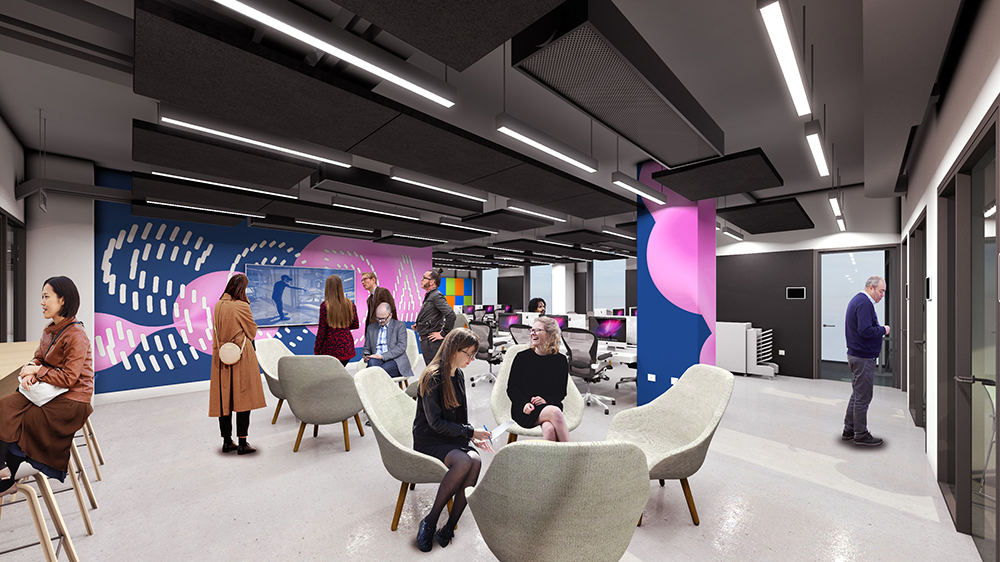
What does this all mean for the future? Has the pandemic irreversibly changed our relationship with media? What do the next generation of creatives value, and how do we ensure this also meets the needs of industry as it emerges from the crisis? Is all this development good, or do we need to better understand its impact?
While the COVID-19 pandemic and the rapid acceleration in technology it has led to could not be foreseen, Manchester Metropolitan University’s School of Digital Arts (SODA) has never felt more timely in helping to answer these questions. And we won’t have long to wait for those answers, as it opens its doors for the first time in September.
SODA is a £35m co-investment with the Greater Manchester Combined Authority (GMCA) and Greater Manchester Local Enterprise Partnership (GM LEP) into the workspaces, networks, teaching and research that will drive ideas and innovation for the next generation of creative content, addressing the urgent and growing demand for skilled workers in the region’s creative and digital industries.
It promises a revolution in how we conceive the future of storytelling – bringing together disciplines including animation, UX design, photography, sound design, gaming, AI and more. Students will learn in the present, but be given space to explore the future, and what it means to be a creative media practitioner at this time of great progress.
SODA provides new platforms for industry leaders to give their time and expertise to nurture new talent, and soak up some of the School’s creative thinking in the application of emergent technologies.
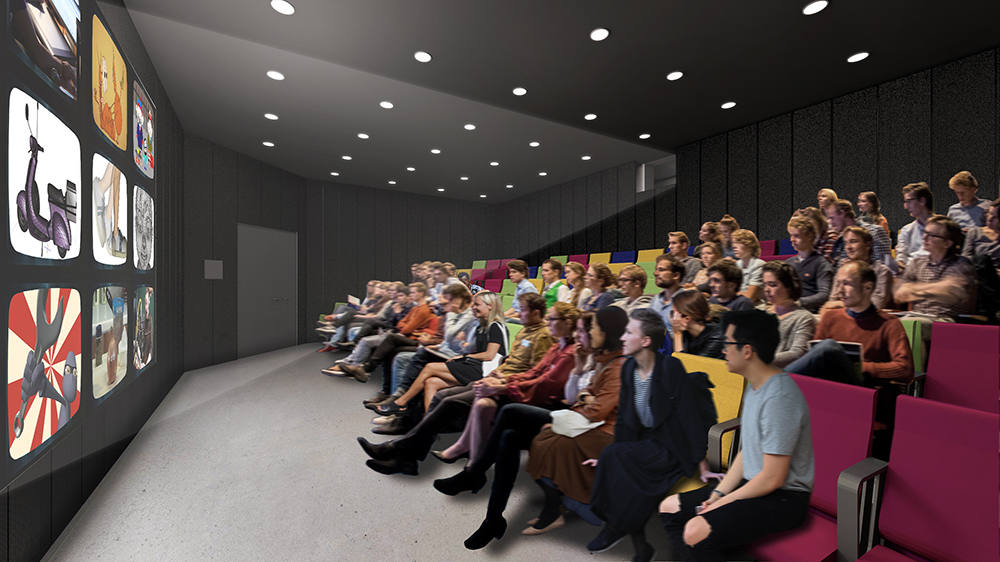
Its curriculum is shaped by an industry advisory group co-chaired by Academy Award winning film director Danny Boyle and multi-BAFTA winning television producer Nicola Shindler, ensuring SODA teaching is directly relevant to industry needs.
SODA researchers will take up the mantle of making sense of how technology is used and the social and ethical issues it throws up, ensuring a future digital workforce that understands how things are made and why they are too.
The overall effect will be to help cement Manchester’s burgeoning reputation as one of the leading global digital cities for years to come. Or as SODA leaders would put it, pioneering creative content “made in Manchester, experienced across the world.”
So, less than six months away from it opening its doors, how is SODA shaping up? Met Magazine chatted (virtually) to those who are getting it ready.
SODA development
Reflecting on what drew him to his role as head of SODA, Professor Toby Heys admitted: “I basically wanted to make something happen in the city that would have meant a 20 year old version of me could have imagined staying here and advancing their career in the way they wanted to.”
Heys is a renowned digital artist and researcher, who has worked and exhibited all over the world. But roles at Manchester Metropolitan – first in the School of Art, and now as head of SODA – drew him back to his native city. “Now I think that is absolutely plausible. And I think SODA makes that plausible.”
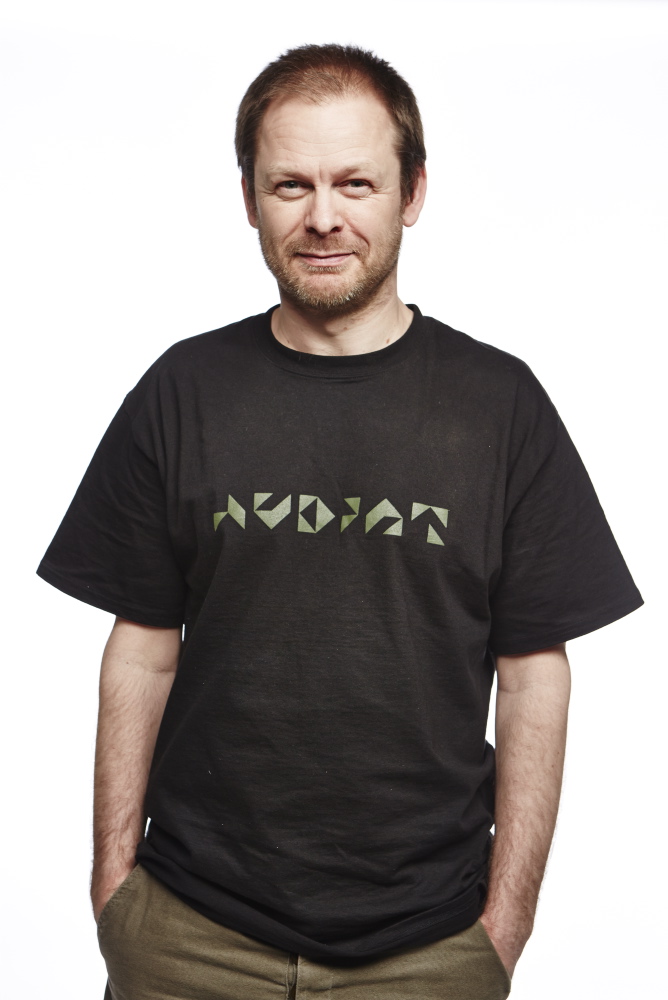
Citing the forthcoming launch of The Factory in Manchester in 2022 alongside SODA, Heys believes there is a “massive shift in the landscape of digital arts and digital culture.”
“I took on the role because I wanted to lead on a project which was really meaningful to the region and to the nation. SODA will be one of the biggest schools of digital arts in the country and one of the best digital schools in the country. And that’s enormously exciting and compelling.”
Since he took on the position at the end of 2019, SODA’s development has happened at pace – despite the challenges of the COVID-19 pandemic.
The fivestorey SODA building, designed by FCBStudios, is on track to open mid-September, housing a digital innovation lab, green screens, edit suites, screening space, a media gallery, sound and music studios and production studios.
Thousands of students have applied for the new SODA undergraduate and postgraduate courses, in areas as diverse as filmmaking, games art, web and user experience design, documentary and emergent technologies.
SODA will also have a strong research focus, examining AI powered immersive documentary, expanded reality and digital IP, taking into account ethical considerations of the future use of AI, algorithms, multi-sensory technology and how it interacts with the human body, and ultimately how these technologies are utilised in the future.
Its first Visiting Professors have been unveiled as acclaimed musician Barry Adamson and the Academy Award winning animator Michael Dudok de Wit, with special events and projects planned with them over coming months.
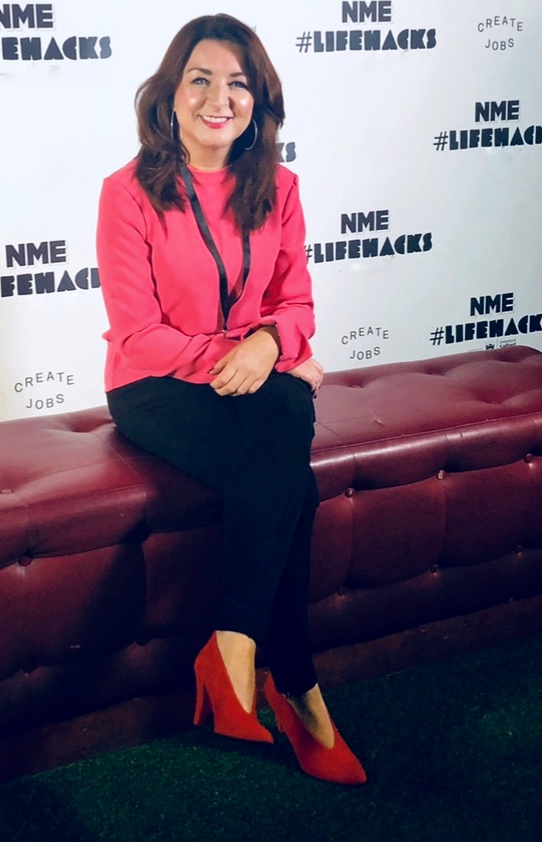
The Industry Advisory Group has formed, co-chaired by Boyle and Shindler, and including senior figures from organisations as diverse as the BBC, Apple, Universal Music and the Ghetto Film School.
Research projects are in the pipeline with cutting edge digital companies, including Forever Holdings on an augmented reality cultural experience, and Prolific North on mapping out Manchester’s creative and digital sector, and many more planned. In short – SODA is bubbling over.
“It’s an absolutely brilliant team of people who are highly talented and very skilled,” said Dr Kirsty Fairclough, Reader in Screen Studies, who joined SODA last summer and is the lead on external engagement. “What’s really struck me, and I’ve been working in HE now for 20 years, is that notion that people are just so willing to take an idea and run with it. SODA is all about innovation and about being disruptive.”
Industry
Innovation and disruption are being put into practice in the form of co-labs, a new approach to teaching that will be embedded in every SODA course.
It will see students, researchers and professionals working together on live industry projects. An animator and a games designer might seek out the input of a photographer, a filmmaker or sound engineer to create new, diverse solutions. Students gain knowledge and academic credit, and industry gains from new ideas and the space to experiment and collaborate.
Heys said: “The co-labs just realise and manifest the working environment outside of the University. They reflect the fluid dynamics that occur between creative producers, technicians, concept engineers and the fact that many creative industries are now in a state where there are no walls anymore between disciplines.”
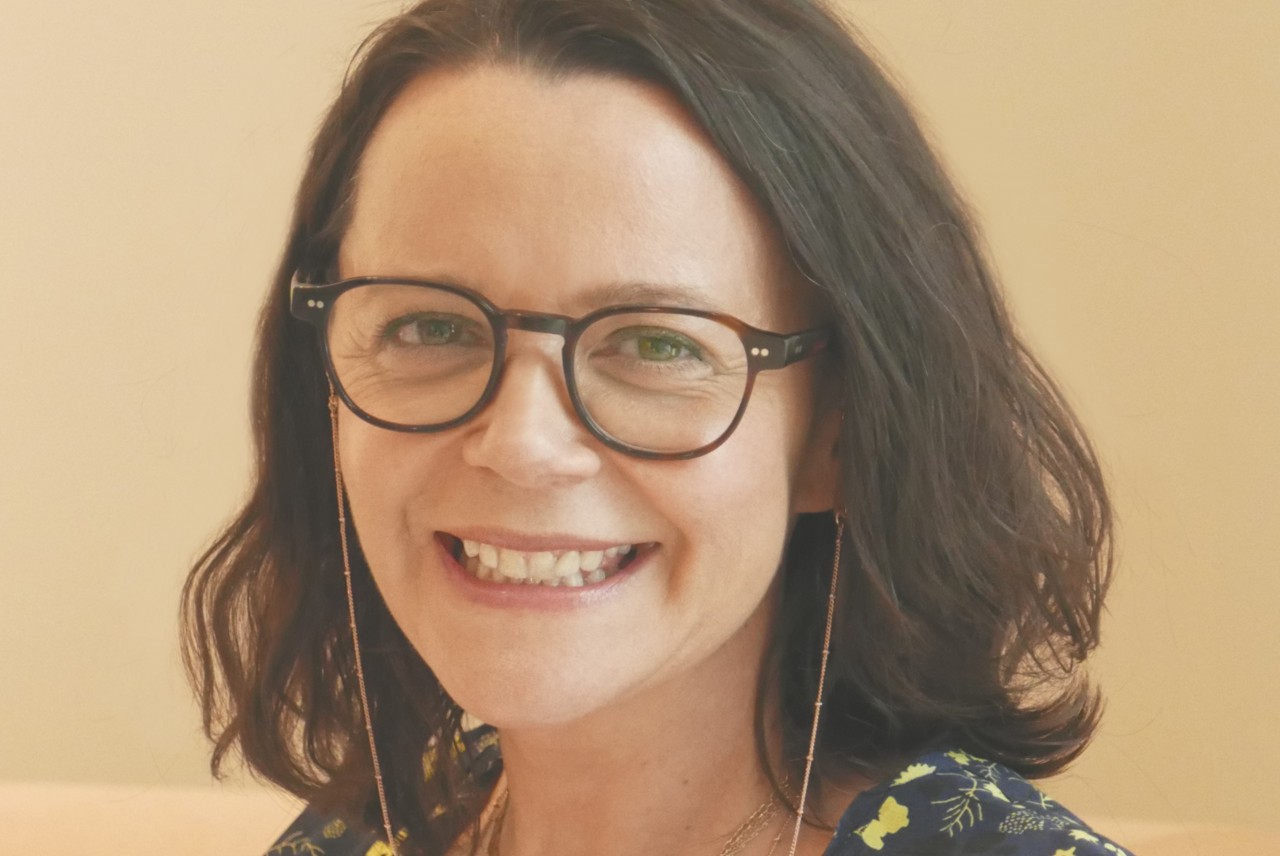
Heys and Fairclough say that involvement in SODA has not been a difficult sell. Heys said: “It does feel like the city has been crying out for this. And it feels like industry is just very excited to be involved. The calibre of people that we have on the Industry Advisory Group absolutely points to that. They see the huge potential of the project, not just regionally, but nationally and internationally.”
Shindler jumped at the chance to be part of the Industry Advisory Group shaping SODA’s direction when she first heard about it. A Greater Manchester native, she has produced some of the UK’s most beloved TV dramas in recent years, including Queer As Folk, Happy Valley, and recently, Channel 4’s It’s A Sin.
She said: “It just felt to me such an ambitious and thoughtful way of trying to bring media training up-to-date and to make Manchester a centre of excellence. The planned programmes are really exciting because they take in traditional storytelling and mix it with such innovative technology that is futureproofing the students’ careers, which I think is fascinating.”
At the very pinnacle of her industry, Shindler is well placed to see future media trends. She said that storytelling remains paramount, but understanding different tools can only be a bonus.
“We now use innovative technology. We’ll look at graphics in a different way. We will do all sorts of post-production experiments on the picture that we never would have done before.
“So if [young people] want a career in the media, then to know these elements is so much better. They will be much more self sustaining because they’ll be able to bring the technology as well as the creative ideas.”
Speaking about utilising the talent of young people more accustomed to making content for YouTube or TikTok, she said: “Our job as an older generation of media gatekeepers is to make sure that we don’t squash the creativity and the brilliance that has got these people noticed and we enable them to bring all the talent and their skills to the screen.”
For industry advisory group member Irini Papadimitriou, Creative Director at Manchester based-Future Everything, it is SODA’s unique offer to industry and the arts that makes it so important.
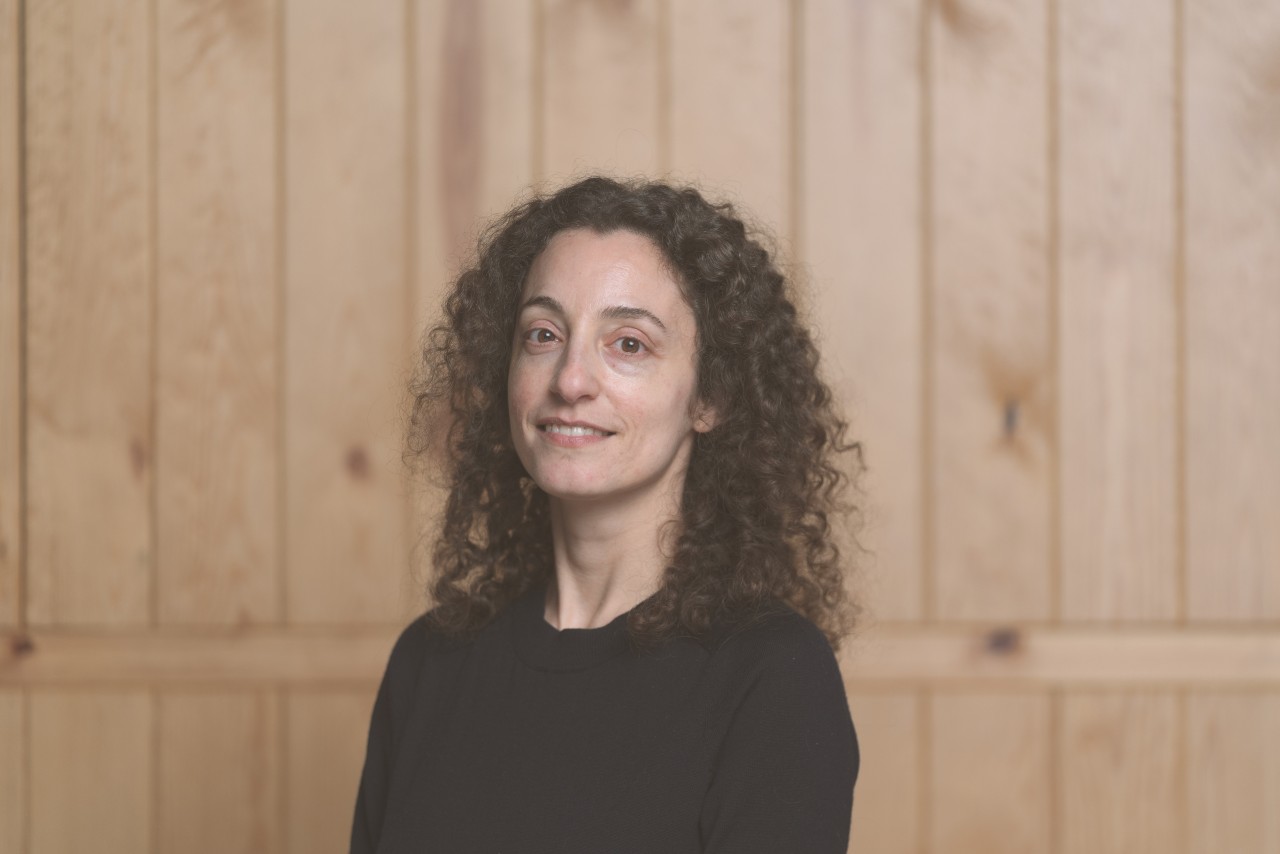
“We are an arts organisation, but we collaborate with different sectors. We work with local authorities, but also in the tech industry, business, academia and of course, the arts. And it’s very much thinking about this idea that art and design is not just about the final outcome, or creating something physical at the end. It’s also about the conversations, the values, the ethics, the enabling of people to ask questions and come together and collaborate. This is really important in terms of what SODA is trying to do in creating an environment that brings people from different sectors together.”
Manchester – tech capital
Recent analysis showed that Manchester is the fastest growing tech city in Europe, and digital and technology businesses are worth £3.4bn to the regional economy.
This rapid expansion means the demand for skilled employment is at an all-time high, and the race is on to meet that demand. Analysis that fed into the SODA launch identified this, with 69 per cent of tech start-ups in the North West at the time struggling to recruit.
Heys said: “SODA is needed now because Manchester is one of, if not the leading digital city in Europe. It has had more investment over the past couple of years than any other city in Europe. There are a lot of companies, a lot of SMEs. There are positions opening up for graduates to walk into.”
That is where SODA steps in, working hand-in-hand with local decision-makers and industry. Even before it has opened its doors, the UK’s first Digital UX Degree Apprenticeship has already begun, upskilling workers in companies across the region, from Co-op Digital to Barclays.
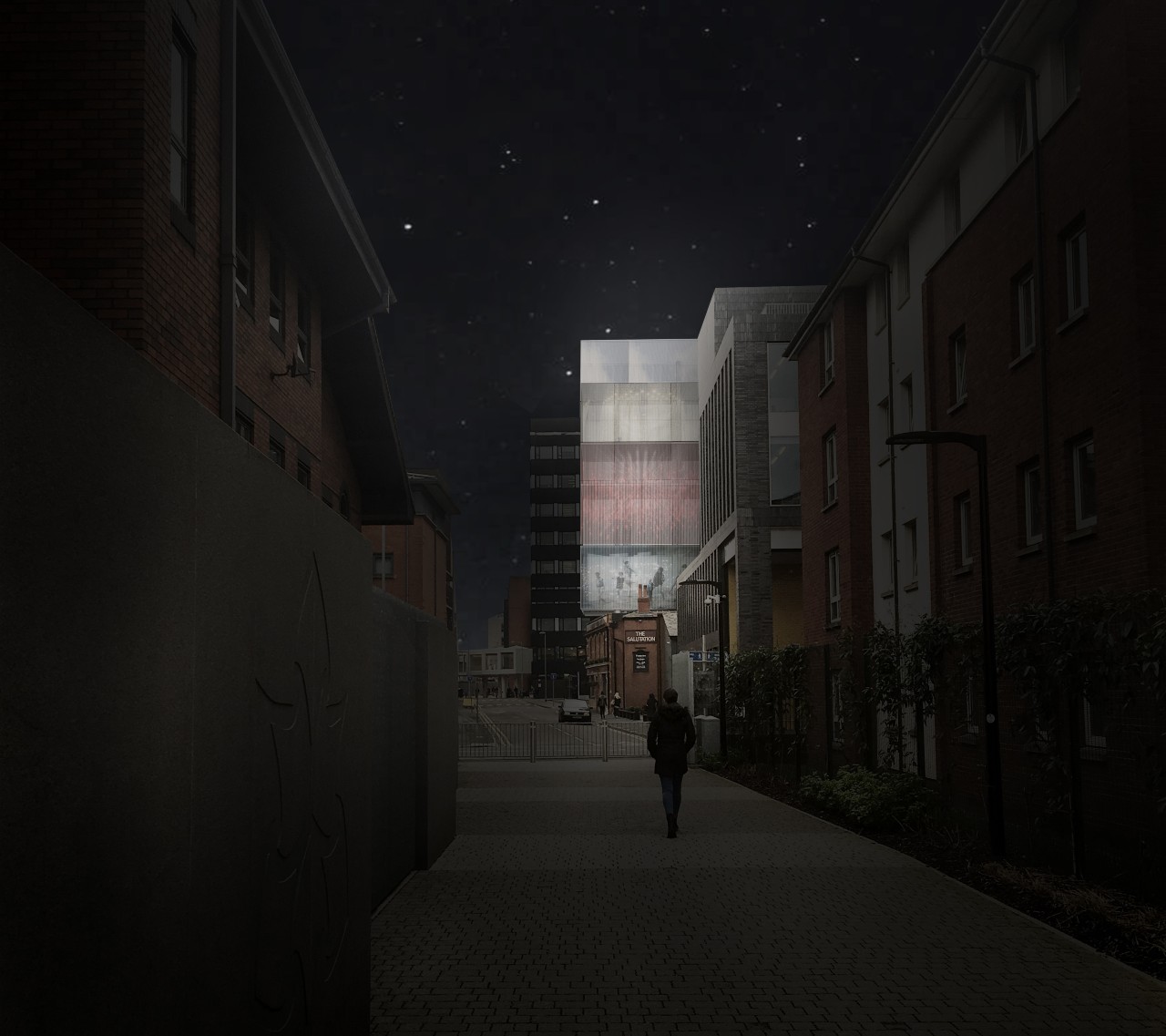
Lou Cordwell, Chair of Greater Manchester Local Enterprise Partnership (GM LEP), said: “I am hugely excited that we can now look ahead to the opening of SODA. We are rightly proud of our digital and creative industries in Greater Manchester and we are determined to build on our strengths to become a worldleading digital city-region.
“The School will help tackle the digital skills gap we know exists, equipping people with sought after skills in relevant disciplines that will help them get high-quality jobs or advance their career. A facility that specialises in digital storytelling is an asset that sets us apart, particularly as we look to recover from a pandemic which has accelerated the use of technology in everything we do.
“SODA is also a great example of the strong partnerships that make Greater Manchester unique. Its creation is a result of continued successful collaboration between education, business and the public sector, and has been backed by the LEP and the GMCA with £14.9m from the Local Growth Fund.”
But what makes Manchester such an attractive place for creatives to live, work and invest? Shindler is somewhat of a pioneer in that regard – first setting up the acclaimed Red Production Company in Salford in 1998, and earlier this year launching Quay Street Productions, a new drama focussed TV production company based in the heart of Manchester.
“I’ve always found Manchester a really creative, vibrant city, and the energy that brings has really helped us with our productions,” she said.
“I will go to London to get my commissions and to talk to people who are in power. And then I’ll come back and I’ll make something. We have an edge of individuality about us and originality because we’re outside that London bubble. So I think if SODA can imbibe some of that and take some of that culture with them, it puts them at an advantage.”
One person who understands the opportunities in digital business that Manchester has to offer is Stuart Ashton, EMEA Manager for Blackmagic Design, a member of SODA’s Industry Advisory Group – and a Manchester Metropolitan alumnus.
Even as Blackmagic have expanded their video production manufacturing business, they’ve retained their North West base. “The benefit of a city like Manchester is that first and foremost, built on the back of the industrial revolution and thereafter the creativity that it has been able to provide, it means that you have a really great foundation for creative people. And I think that the willingness to work together and collaborate means that as a creative person, you feel at home in this city.”
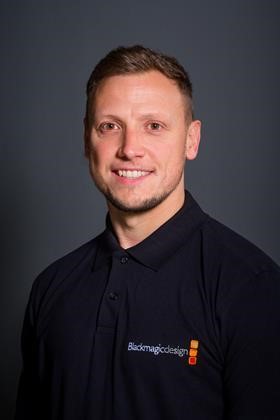
As a television production graduate, he is a forerunner of the type of skilled worker SODA will produce, and he reflects fondly on how his time at Manchester Met led him to where he is today.
“I think about the tutors that I had and what they actually instilled in me. And I feel very fortunate in where I am. If there’s any opportunity where I can do that for one other individual, then for me that would be very rewarding. That’s why I want to be involved with SODA, because I see myself in those students from 20 years ago.”
Future
Heys is passionate about the type of graduate SODA will produce, following in Ashton’s footsteps, and the influence they can have in the region.
“We need to train the next generation of digital creatives, not just in a technical manner,” he said. “We need to train them philosophically and ethically to be fluid, agile, to be set to pioneering, to be brave and courageous and to ultimately be disruptive and creative. That’s the type of culture that industry wants. Industry doesn’t want people just to fit in and become another cog in the mechanism. They want people who will come and rethink the way that they’re doing business or rethink the way they’re producing.”
“SODA is needed now because Manchester is one of, if not the leading digital city in Europe. It has had more investment over the past couple of years than any other city in Europe. There are a lot of companies, a lot of SMEs. There are positions opening up for graduates to walk into.”
If it wasn’t clear from this fulsome summary of SODA’s activity – they have a lot on, and big ambitions that go well beyond the launch, ultimately to grow nationally and internationally.
But just months away from when the first cohort of newly recruited SODA students will sit down in a lecture or join a colab, it is possible to foresee three years’ time when those students will soon become the first SODA graduates to enter a hopefully buoyant jobs market.
By then, for example, Shindler’s new Quay Street Productions should be well established. Can she imagine working with those young SODA graduates in future?
“Yeah, definitely. Totally. And that’s fantastic.”
